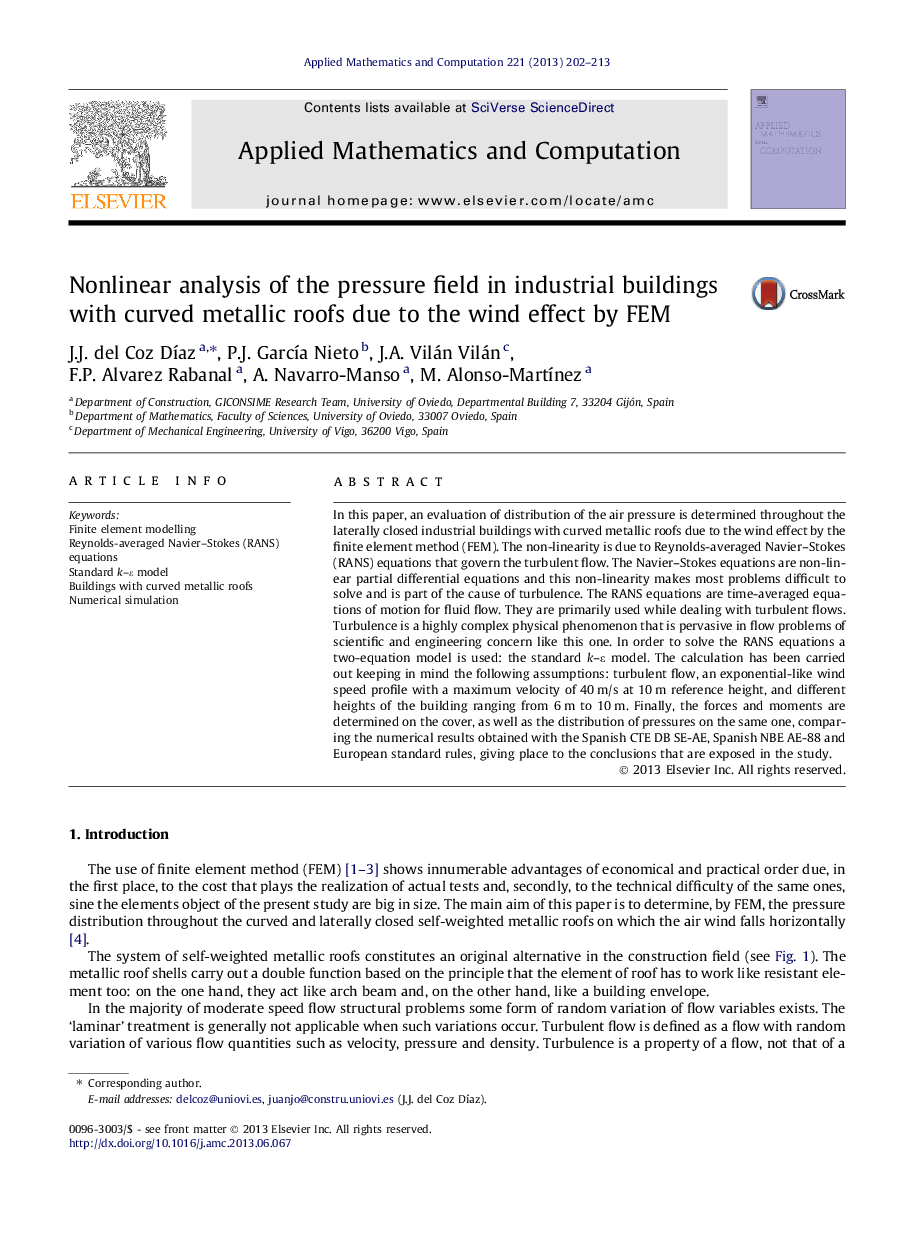| کد مقاله | کد نشریه | سال انتشار | مقاله انگلیسی | نسخه تمام متن |
|---|---|---|---|---|
| 6421415 | 1631833 | 2013 | 12 صفحه PDF | دانلود رایگان |

- Reliable results for pressure were obtained by using steady RANS-CFD simulations.
- We have determined the forces and moments on the cover with accurateness.
- A standard k-ε model is integrated to investigate the wind effect by FEM.
In this paper, an evaluation of distribution of the air pressure is determined throughout the laterally closed industrial buildings with curved metallic roofs due to the wind effect by the finite element method (FEM). The non-linearity is due to Reynolds-averaged Navier-Stokes (RANS) equations that govern the turbulent flow. The Navier-Stokes equations are non-linear partial differential equations and this non-linearity makes most problems difficult to solve and is part of the cause of turbulence. The RANS equations are time-averaged equations of motion for fluid flow. They are primarily used while dealing with turbulent flows. Turbulence is a highly complex physical phenomenon that is pervasive in flow problems of scientific and engineering concern like this one. In order to solve the RANS equations a two-equation model is used: the standard k-É model. The calculation has been carried out keeping in mind the following assumptions: turbulent flow, an exponential-like wind speed profile with a maximum velocity of 40Â m/s at 10Â m reference height, and different heights of the building ranging from 6Â m to 10Â m. Finally, the forces and moments are determined on the cover, as well as the distribution of pressures on the same one, comparing the numerical results obtained with the Spanish CTE DB SE-AE, Spanish NBE AE-88 and European standard rules, giving place to the conclusions that are exposed in the study.
Journal: Applied Mathematics and Computation - Volume 221, 15 September 2013, Pages 202-213